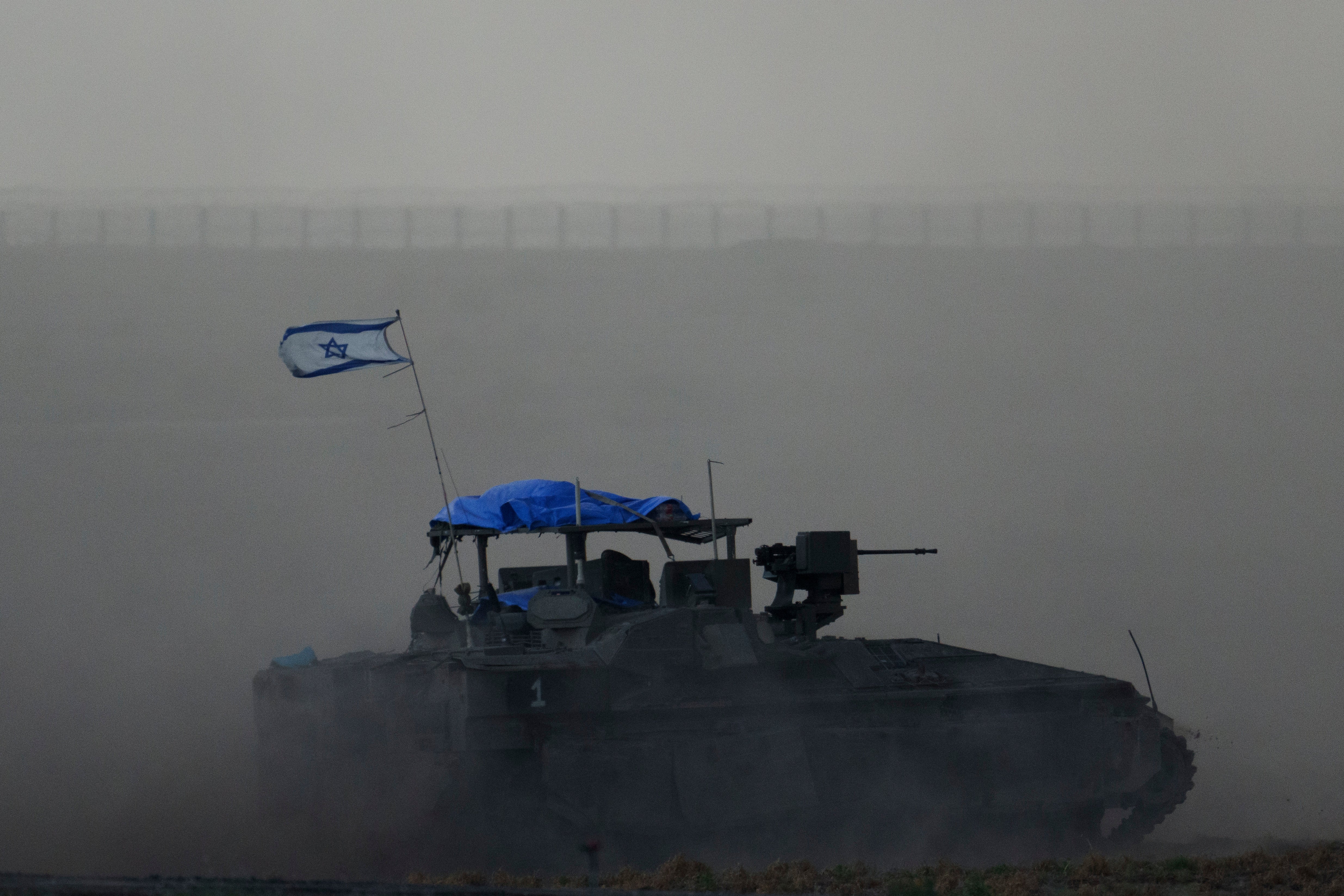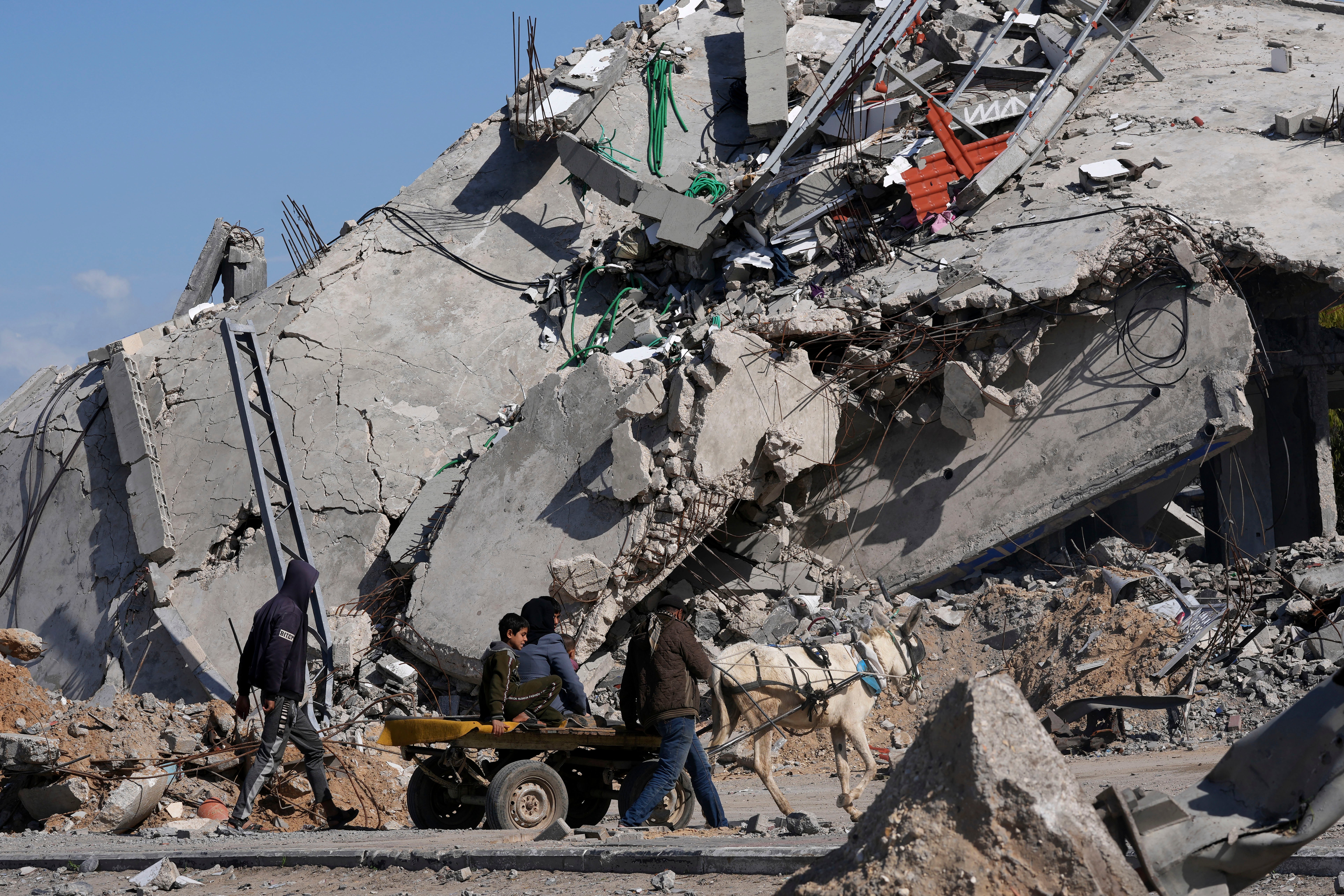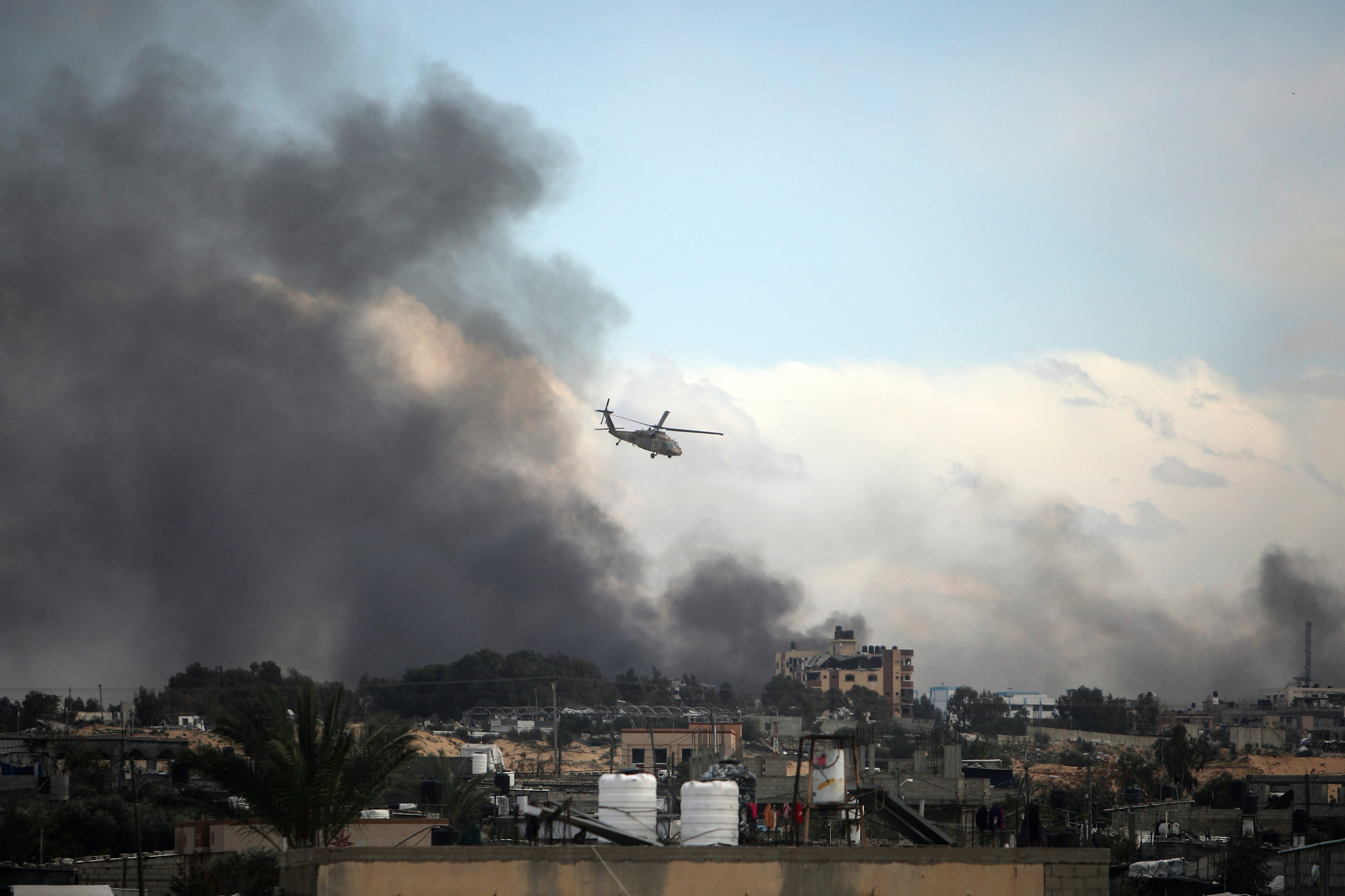Patients die as oxygen runs out in Gaza hospital seized by Israeli forces, health officials say
Hospital staff claim Israeli fire killed a patient and wounded six others inside the complex
Your support helps us to tell the story
From reproductive rights to climate change to Big Tech, The Independent is on the ground when the story is developing. Whether it's investigating the financials of Elon Musk's pro-Trump PAC or producing our latest documentary, 'The A Word', which shines a light on the American women fighting for reproductive rights, we know how important it is to parse out the facts from the messaging.
At such a critical moment in US history, we need reporters on the ground. Your donation allows us to keep sending journalists to speak to both sides of the story.
The Independent is trusted by Americans across the entire political spectrum. And unlike many other quality news outlets, we choose not to lock Americans out of our reporting and analysis with paywalls. We believe quality journalism should be available to everyone, paid for by those who can afford it.
Your support makes all the difference.The storming by Israeli troops of southern Gaza's main hospital brought chaos to hundreds of staff and patients inside, as health officials said four people in intensive care died after their oxygen cut off.
Troops were searching the facility, where the military said it believes the remains of hostages abducted by Hamas might be located.
The raid came after troops had besieged Nasser Hospital in the southern city of Khan Younis for nearly a week, with staff, patients and others inside struggling under heavy fire and dwindling supplies, including food and water. Hours before troops seized the hospital on Thursday, Israeli fire killed a patient and wounded six others inside the complex, staff said.
Negotiations over a cease-fire in Gaza, meanwhile, appear to have stalled, and Israeli Prime Minister Benjamin Netanyahu on Friday pushed back hard against the US vision for after the war — particularly its calls for the creation of a Palestinian state. After speaking overnight with President Joe Biden, Netanyahu wrote on X that Israel will not accept “international dictates regarding a permanent settlement with the Palestinians.”
He said that if other countries unilaterally recognize a Palestinian state, it would give a “reward to terrorism.” Netanyahu has repeatedly rejected creation of a Palestinian state.
Netanyahu has vowed to continue the offensive and expand it to the Gaza city of Rafah, near Egypt, until Hamas is destroyed and scores of hostages taken during the militants’ October 7 attack are freed. In their phone call, Biden again cautioned Netanyahu against moving forward with a military operation in Rafah before coming up with a “credible and executable plan” to ensure the safety of Palestinian civilians, the White House said.

With the war showing no sign of ending, the risk of a broader conflict grew as Israel and Lebanon’s Hezbollah militant group had deadliest exchange of fire along the border since the start of the Israel-Hamas war. Israel launched airstrikes into southern Lebanon for a second day on Thursday after killing 10 civilians and three Hezbollah fighters on Wednesday in response to a rocket attack that killed an Israeli soldier and wounded several others.
Scenes of panic
Nasser Hospital was the latest in a series of hospitals Israeli forces have besieged and stormed during the war, claiming Hamas was using them for military purposes. The assaults have gutted Gaza’s health sector as it struggles to treat a constant stream of people wounded in daily bombardments.
Israeli troops, tanks and snipers have surrounded Nasser Hospital for at least a week, with food, water and supplies inside dwindling and fire from outside killing several people inside, according to health officials.
Troops moved into the hospital Thursday after the military said it had “credible intelligence” that Hamas had held hostages there and that the hostages’ remains might still be inside. Rear Adm. Daniel Hagari, the chief military spokesperson, said forces were conducting a “precise and limited” operation there and would not forcibly evacuate medics or patients.
Later Thursday, Hagari said troops were still searching the hospital. He said dozens of militants were arrested from the hospital grounds, including three who participated in the Oct. 7 attack. He also said troops found grenades and mortar shells, and that Israeli radar determined that militants fired mortars from the hospital grounds a month ago. The claims could not be independently confirmed.
A released hostage told The Associated Press last month that she and over two dozen other captives had been held in Nasser Hospital.

International law prohibits the targeting of medical facilities, though they can lose those protections if they are used for military purposes. Even then, Israel must take precautions and follow principles of proportionality, the U.N. Human Rights Office said, adding that “as the occupying power” Israel has the duty to maintain medical facilities.
As they searched, troops ordered the more than 460 staff, patients and their relatives to move into an older building in the compound that isn’t equipped to treat patients, the Gaza Health Ministry said. They were “in harsh conditions with no food or baby formula” and severe water shortages, it said.
Four patients in the intensive care unit died early Friday because electricity was cut, stopping oxygen supplies for them, the ministry said. It had earlier warned that six patients in the ICU and three infants in incubators were in danger because fuel for generators was on the verge of running out. “The Israeli occupation is responsible for the lives of patients and staff as the compound now is under its full control,” the ministry said.
Raed Abed, a wounded patient who was among those who left the hospital Wednesday, said days of siege had left the facility with no water or food, "Garbage is everywhere. Sewage has flooded the emergency ward.”
Still suffering from a severe stomach wound, Abed said he and others waited outside for hours as troops made those leaving pass by five at a time, arresting some and making them strip to their underwear, he said. Finally, he walked for kilometers (miles) until he reached the border town of Rafah, where he was put in a hospital. Lying in a bed there, he wheezed in pain from his wound as he spoke.
No end in sight
The war began when Hamas militants on October 7 burst out of Gaza and attacked several Israeli communities, killing some 1,200 people and taking another 250 hostage. More than 100 captives were freed during a cease-fire in November in exchange for 240 Palestinian prisoners. Around 130 hostages remain in Gaza, a fourth of whom are believed to be dead.
Israel responded to the Hamas attack with one of the deadliest and most destructive military campaigns in recent history.
At least 28,663 Palestinians have been killed, mostly women and children, and more than 68,000 wounded, according to Gaza’s Health Ministry, which does not distinguish between civilians and combatants. Some 80% of the population has been driven from their homes, and a quarter are starving amid a worsening humanitarian catastrophe. Large areas in northern Gaza, the first target of the offensive, have been completely destroyed.

Israeli media reported that CIA Director William Burns flew to Israel to meet with Netanyahu to discuss efforts for a cease-fire.
Hamas says it will not release all the remaining captives until Israel ends its offensive, withdraws and frees Palestinian prisoners, including top militants.
Netanyahu has rejected those demands and says Israel will soon expand its offensive into Rafah, Gaza’s southernmost city. Over half of Gaza’s population of 2.3 million has sought refuge in Rafah after fleeing fighting elsewhere.
Multiple airstrikes hit Rafah overnight, destroying homes where families were sheltering and killing at least 11 people, according to health officials.